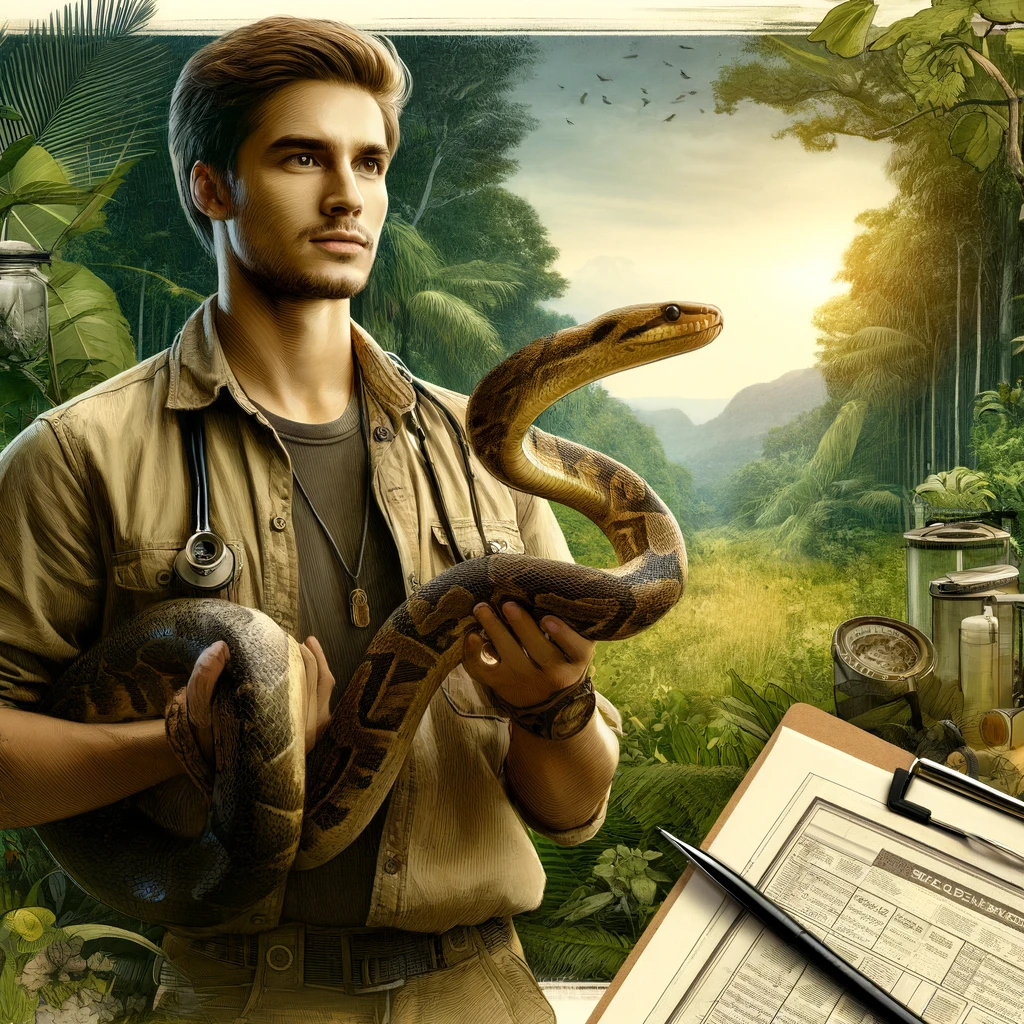Jules Sylvester, born in 1950 in Kenya, East Africa, has carved a unique niche in the realms of animal science and wildlife conservation through his extensive work with reptiles, particularly snakes. His influence stretches beyond the traditional boundaries of academia, as he has adeptly combined his passion for herpetology with roles in film consulting, education, and conservation advocacy. Sylvester’s contributions have significantly affected how we understand, interact with, and conserve reptiles and other wildlife species.
Bringing Reptiles to the Big Screen and Beyond
Sylvester’s work as a reptile consultant for Hollywood films has not only showcased his profound expertise but also brought attention to the fascinating world of these creatures. His involvement in movies like “Raiders of the Lost Ark” and “Snakes on a Plane” has elevated the profile of reptiles, transforming them from misunderstood villains to creatures worthy of respect and protection. Through his film work, Sylvester has educated a global audience about the behavior, importance, and conservation needs of these animals.
Educational Outreach and Advocacy
Beyond his Hollywood fame, Sylvester’s contributions to animal science are evident through his educational efforts. He has been a steadfast advocate for wildlife conservation, using his public platform to dispel myths about snakes and other reptiles. By leading hands-on educational programs and appearing on various television shows, he has inspired curiosity and respect for the natural world. Sylvester emphasizes the importance of conservation, highlighting the critical role that reptiles play in ecosystems around the globe.
Contributions to Herpetology and Animal Behavior
Sylvester’s fieldwork and observations have enriched the scientific community’s understanding of herpetology—the study of reptiles and amphibians. His insights into the behavior, diet, and habitat requirements of these species have contributed to academic research and practical conservation strategies. By documenting his experiences and findings, Sylvester has provided valuable data that aid in the preservation of biodiversity and the maintenance of healthy ecosystems.
Advocating for Ethical Interactions
A significant aspect of Sylvester’s impact on animal science is his advocacy for ethical treatment and responsible interactions with wildlife. His approach to handling reptiles with respect and care sets a standard for wildlife professionals and enthusiasts alike. By promoting ethical practices, Sylvester has influenced the development of guidelines for wildlife conservation efforts, ensuring that these activities do not harm the animals or their habitats.
Legacy and Continuing Influence
Jules Sylvester’s legacy in animal science is multifaceted, encompassing his contributions to education, conservation, and the understanding of reptile behavior. His work demonstrates the power of combining passion with expertise to make a lasting impact on both the scientific community and the general public. As we face increasing environmental challenges, Sylvester’s dedication to wildlife conservation serves as a reminder of the importance of protecting our planet’s diverse species for future generations.

Through his unique career, Sylvester has not only advanced the field of animal science but has also played a crucial role in changing perceptions about reptiles. His efforts have contributed to a greater appreciation for the complexity and value of these creatures, paving the way for continued research and conservation initiatives. Jules Sylvester remains a pivotal figure in the ongoing quest to understand and conserve the natural world.
